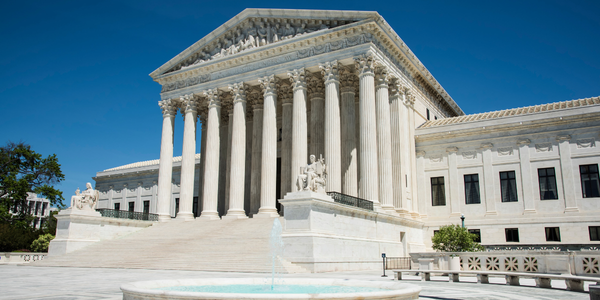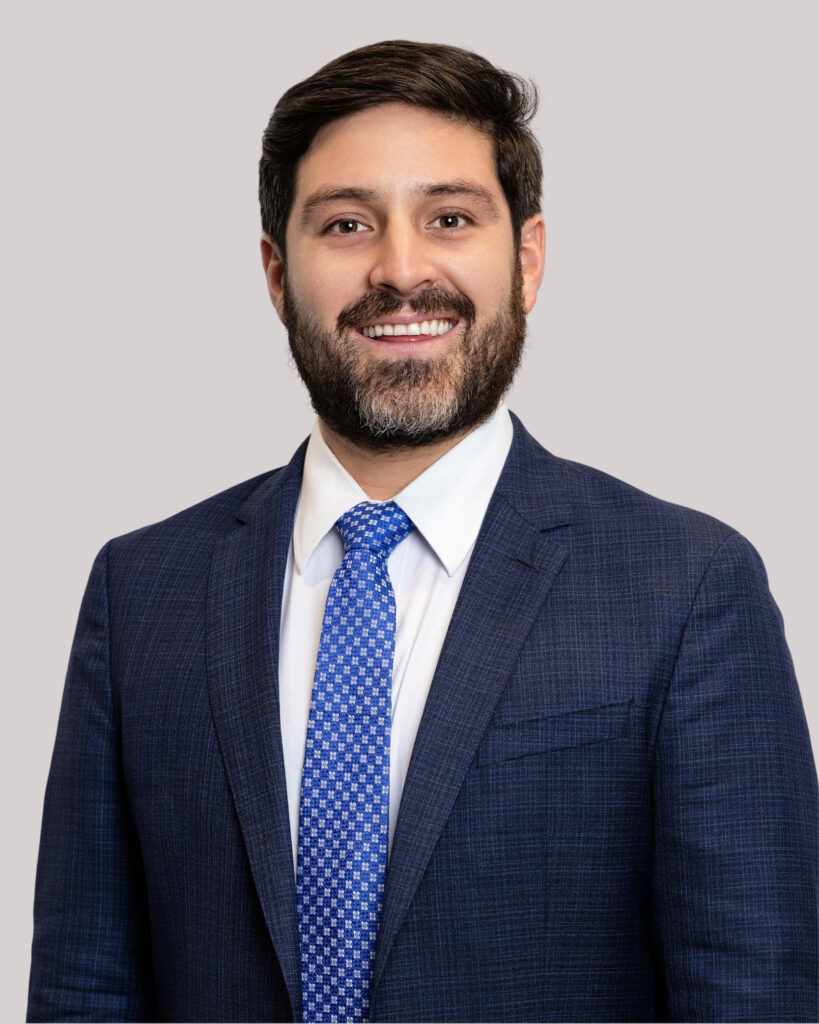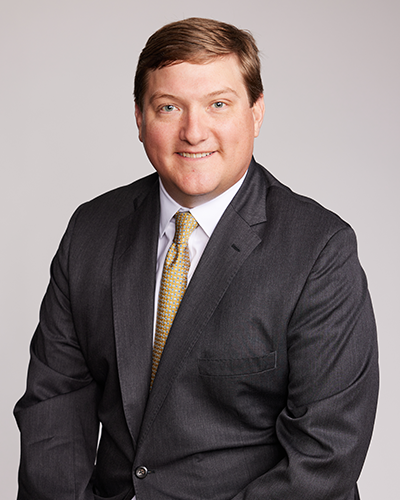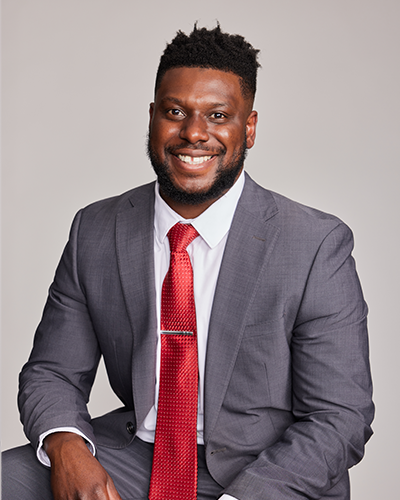Cokinos | Young Principal Kyle Zunker (San Antonio) authored an article, published in The Construction Law Journal, Volume 20, Number 2, examining recent decisions from the U.S. Supreme Court and Texas Supreme Court regarding “fourth-order” arbitration disputes. In the article, Zunker explains how the rapidly evolving law of arbitrability impacts the construction industry and why precise contract drafting is more important than ever.

Thirty years ago, in First Options of Chicago, Inc. v. Kaplan,[1] the United States Supreme Court held that arbitrators, not courts, have the primary power to decide arbitrability when there is “clear and unmistakable evidence” that the parties agreed to arbitrate arbitrability.[2] While First Options was not the first time the Court recognized that parties could delegate arbitrability to an arbitrator,[3] the case is seminal because the Court explained its rationale in unprecedented detail and framed the three layers (or orders) of arbitration disputes: (i) the merits of the dispute, (ii) whether the parties agreed to arbitrate the merits, and (iii) who decides whether the parties agreed to arbitrate the merits.[4]
Last year, in Coinbase, Inc. v. Suski,[5] the United States Supreme Court recognized a fourth layer of arbitration disputes:
What happens if parties have multiple agreements that conflict as to the third-order question of who decides arbitrability?[6]
Coinbase involved the operator of a cryptocurrency exchange platform and several of the platform’s users.[7] The parties first entered into a user agreement containing the following arbitration clause:
This Arbitration Agreement includes, without limitation, disputes arising out of or related to the interpretation or application of the Arbitration Agreement, including the enforceability, revocability, scope, or validity of the Arbitration Agreement or any portion of the Arbitration Agreement. All such matters shall be decided by an arbitrator and not by a court or judge.[8]
After executing the user agreement, the platform operator offered a sweepstakes allowing users to enter for a chance to win Dogecoin.[9] The users agreed to the sweepstakes’ official rules, which contained the following forum-selection clause:
The California courts (state and federal) shall have sole jurisdiction over any controversies regarding the [sweepstakes] promotion, and the laws of the State of California shall govern the promotion. Each entrant waives any and all objections to jurisdiction and venue in those courts for any reason and hereby submits to the jurisdiction of those courts.[10]
A dispute arose from the sweepstakes, and a group of users filed a class-action complaint in the U.S. District Court for the Northern District of California.[11] The platform operator moved to compel arbitration of the dispute, including the arbitrability issue. The district court concluded that the sweepstakes’ official rules superseded the user agreement and denied the motion to compel arbitration, and the Ninth Circuit affirmed.[12]
The Supreme Court “granted certiorari to answer the question of who—a judge or arbitrator—should decide whether a subsequent contract supersedes an earlier arbitration agreement that contains a delegation clause.”[13] The Court noted that “the question whether these parties agreed to arbitrate arbitrability can be answered only by determining which contract applies.”[14] The Court held that, as to “the conflict between the delegation clause in the first contract and forum selection clause in the second, the question is whether the parties agreed to send the given dispute to arbitration—and, per usual, that question must be answered by a court.”[15] The Court concluded “that a court, not an arbitrator, must decide whether the parties’ first agreement was superseded by their second.”[16]
In other words, the United States Supreme Court held that a court would decide whether the court or arbitrator would decide whether the court or arbitrator would decide the merits of the case. The preceding sentence is not a series of typographical errors. This meta-question is easiest to grasp when viewed as an extension of the first, second, and third-order disputes that precede it:
First-Order: The merits
Second-Order: Who decides the merits (i.e. arbitration or litigation)
Third-Order: Who decides who decides the merits (i.e. delegation of arbitrability)
Fourth-Order: Who decides who decides who decides the merits
At first glance, Coinbase appears to be a holding of limited application arising from an idiosyncratic fact pattern. But this article explores whether Coinbase might be the harbinger of a new era of fourth-order arbitration disputes—especially in Texas construction law.
- THE LAW REGARDING THIRD AND FOURTH-ORDER ARBITRATION DISPUTES IS DYNAMIC AND LIKELY TO CONTINUE DEVELOPING
Recent history shows that Coinbase is unlikely to be the final word on arbitration disputes. In 2018, the Texas Supreme Court formally recognized First Options and held parties can agree to arbitrate arbitrability.[17] In the seven years since then, the Texas Supreme Court has issued at least eleven opinions regarding third and fourth-order arbitration disputes,[18] and Justice Busby has authored at least two dissents, including one stemming from a denial of a motion for rehearing last year.[19] During that same period, the United States Supreme Court issued three opinions regarding third and fourth-order arbitration disputes.[20]
Taken together, the two high courts have issued at least 14 opinions shaping arbitration practice in Texas over the past 7 years. Based on this track record, practitioners in Texas have good reason to expect that: (i) contracting parties and their lawyers will draft arbitration agreements with language taken from and aimed at the most recent case law regarding third and fourth-order disputes, (ii) litigants and their counsel will make creative arguments regarding the terms of those arbitration agreements when third and fourth-order disputes arise, and (iii) courts will continue issuing opinions concerning those arbitration agreements and arguments. For example, in the short space between the writing and final editing of this article, two intermediate courts of appeals issued opinions concerning Coinbase and fourth-order arbitration disputes.[21]
- AS THE LAW DEVELOPS, FOURTH-ORDER DISPUTES MAY NOT BE CONFINED TO THE EXPRESSLY-CONFLICTING-CONTRACT SCENARIO IN COINBASE
When describing how the dispute in Coinbase differed from first, second, and third-order arbitration disputes, the Court stated: “This case involves a fourth [order of dispute]: What happens if parties have multiple agreements that conflict as to the third-order question of who decides arbitrability?”[22] As suggested by the Court’s use of the indefinite article “a” rather than the definite article “the,” is it possible that the Court was identifying just one example of a fourth-order dispute? Might there be other fourth-order disputes (beyond the expressly-conflicting-contracts scenario) in which the parties disagree about who decides who decides arbitrability? This article explores three other potential fourth-order dispute scenarios
- What Constitutes “Implicitly Sending Arbitrability Disputes to the Courts?”
As noted above, in Coinbase, the parties entered into contracts that were expressly contradictory. But, near the end of the opinion, when addressing arguments raised by the petitioner, the Court expanded its holding: “[W]here, as here, parties have agreed to two contracts—one sending arbitrability disputes to arbitration, and the other either explicitly or implicitly sending arbitrability disputes to the courts—a court must decide which contract governs.”[23] In his concurrence, Justice Gorsuch proposed a hypothetical: “Just imagine a master contract providing that ‘all disputes arising out of related to this or future agreements between the parties, including questions concerning whether a dispute should be routed to arbitration, shall be decided by an arbitrator.’ Absent some later amendment, a provision like that would seem to require a court to step aside.”[24]
Now, consider this hypothetical: a general contractor and a subcontractor enter into a master subcontract that provides for arbitration with delegation of arbitrability and, subsequently, a work order that contains an arbitration agreement with no delegation of arbitrability. Is the work order’s silence on delegation “implicitly sending arbitrability disputes to the courts?” Is the work order’s arbitration clause an “amendment” to the master subcontract’s arbitration clause? And finally, who—the court or the arbitrator—will decide these two questions?
- Where Is the Line between Existence and Scope?
Earlier this year, the Texas Supreme Court decided a case in which the parties disputed whether there was an agreement to delegate arbitrability for the personal injury claims at issue.[25] In Cerna as Next Friend of R.W. v. Pearland Urban Air, L.L.C.,[26] the plaintiff signed an arbitration agreement with a delegation clause when she visited a trampoline park in August.[27] The plaintiff returned to the park in November but did not sign an arbitration agreement on this occasion.[28] In a suit for injuries arising from the second visit to the trampoline park, the plaintiff argued that no arbitration agreement existed for the November visit.[29]
The Court rejected the plaintiff’s argument, reasoning that it regarded “the scope of the August Agreement, not its existence.”[30] The Court explained that “[a]n argument about an agreement’s ‘existence,’ when confined to a particular claim, crosses the threshold from existence to scope. Such a dispute concerns not if an agreement to arbitrate exists, but which claims are arbitrable under that agreement.”[31] This distinction is critical because “only courts can decide existence, but scope can be delegated.”[32] Because it found the dispute regarded scope rather than existence, the Court remanded with instructions for the trial court to compel arbitration, including the issue of arbitrability.[33]
The Court’s distinction between existence and scope makes sense in theory but raises a question about where to draw the line. In Cerna, the Court noted that the August arbitration agreement, which included a delegation clause, did not specify its duration.[34] If the agreement had limited its duration––for example, to one month––would the Court have found that the dispute concerned the existence of an agreement rather than its scope?
What if an arbitration agreement were limited, either expressly or impliedly, to a certain subject matter, like a particular construction project? Consider the following hypothetical. A general contractor enters into a contract with a subcontractor for a large project (Project A). It is undisputed that the contract exists and includes an arbitration agreement with a delegation clause assigning issues of arbitrability to the arbitrator. Following the successful completion of Project A, the contractor and subcontractor cease doing business together. Fast forward ten years. The contractor, needing to supplement its workforce on a smaller project (Project B), reaches out to the same subcontractor. Because Project B is small and the contractor is facing a tight schedule, the contractor does not bother entering into a written contract with the subcontractor; instead, the parties merely discuss pricing over the phone, and the subcontractor begins work. A dispute then arises between the contractor and subcontractor regarding Project B.
Does the delegation clause from the contract for Project A apply to this dispute, and who makes that decision? Under Cerna, the answer to that depends on whether this is a dispute about (i) the scope of the arbitration agreement from Project A or (ii) the non-existence of an arbitration agreement for Project B. But this raises yet another fourth-order question: who decides whether the dispute concerns scope or existence?
- What about Waiver?
If one party argues that the other has waived its right to arbitration through its litigation conduct, is that a fourth-order dispute?
In G.T. Leach Builders, L.L.C. v. Sapphire V.P., L.P.[35]—a case decided before the Texas Supreme Court officially recognized First Options and the delegation of arbitrability—the Texas Supreme Court held that “the question of whether a party has waived its right to arbitration through its litigation conduct is a question of arbitrability for the courts to decide.”[36] The Court reasoned that “the question of whether a party has waived its right to arbitration by its conduct in litigation is just another way of asking the first question of arbitrability: whether there is a presently enforceable arbitration agreement.”[37]
However, the Court subsequently called this rule into question when it decided TotalEnergies E&P USA, Inc. v. MP Gulf of Mexico, L.L.C.[38] In that case, the Court held that the parties had delegated issues of arbitrability to the arbitrator by incorporating the American Arbitration Association (“AAA”) rules into their agreement, because the AAA rules grant the arbitrator the authority to determine arbitrability.[39] In a footnote, the Court favorably cited to a Tenth Circuit opinion holding that incorporation of the AAA rules “constitutes clear and unmistakable evidence that the parties agreed to arbitrate arbitrability issues, including the issue of waiver.”[40] Although the Court did not squarely address waiver, its recognition of delegation-by-incorporation and its citation to the Tenth Circuit precedent suggest that parties may delegate the issue of waiver to the arbitrator.Since the Texas Supreme Court issued TotalEnergies, at least two intermediate courts have ruled on disputes regarding the arbitrability of waiver by litigation conduct.[41] In Fidelity Auto Group, the parties agreed to arbitrate “[a]ny claim or dispute, whether in contract, tort, statute or otherwise (including the interpretation and scope of this Arbitration Provision, and the arbitrability of the claim or dispute), between you and us[.]”[42] The arbitration clause further provided, “You may choose the American Arbitration Association . . . or any other organization to conduct the arbitration subject to our approval.”[43]
When evaluating how this arbitration provision applied to an allegation of waiver, the Ninth Court of Appeals first recited the legal principle from G.T. Leach—“[w]hether a party waived its right to arbitration by its litigation conduct is generally for the courts to decide.”[44] The court then acknowledged TotalEnergies and stated, “The Supreme Court of Texas recently held that ‘as a general rule, an agreement to arbitrate in accordance with the AAA or similar rules constitutes a clear and unmistakable agreement that the arbitrator must decide whether the parties’ dispute must be resolved through arbitration.’”[45]
However, the court noted that “the express language of the parties’ agreement did not adopt the AAA Commercial Rules or require that they be used. Here, the arbitration provision only says the parties ‘may choose’ the AAA or ‘any other organization’ subject to Baytown Nissan’s approval.”[46] Accordingly, the court held that the trial court, not the arbitrator, should determine waiver because “[n]either the arbitration agreement nor the delegation clause mentions waiver by litigation conduct, and there is no clear and unmistakable evidence overcoming the presumption that the court will decide that issue.”[47]
In Humphries Construction, the First Court of Appeals cited Fidelity Auto and followed its logic—first noting that waiver is generally a question for the courts to decide and then acknowledging that parties can delegate arbitrability issues to the arbitrator.[48] Unlike Fidelity Auto, however, the arbitration provision in Humphries Construction expressly adopted the AAA rules: “. . . any Claim . . . shall be administered by the American Arbitration Association in accordance with current Construction Industry Arbitration Rules.”[49]
The contractor argued that, under TotalEnergies, the parties’ adoption of the AAA rules demonstrated their clear and unmistakable intent to delegate the issue of waiver by litigation conduct to the arbitrator.[50] The court disagreed and stated that, “TotalEnergies did not address the question of whether delegation to the arbitrator of the power to rule on ‘any objection with respect to the existence, scope, or validity of the arbitration agreement’ also delegates to the arbitrator the exclusive power to decide the issues of waiver by litigation conduct.”[51] Again citing to Fidelity Auto, the court in Humphries Construction held that “[b]ecause neither the Arbitration Rules nor the Construction Contract address who has the power to decide the issue of waiver by litigation conduct, we cannot say that the parties clearly and unmistakably delegated this issue to the arbitration panel.”[52]
In summary, both the Fidelity Auto and Humphries Construction courts recognized that the issue of waiver could be delegated to an arbitrator, but found no “clear and unmistakable” agreement to delegate in their respective cases.[53] In both cases, the courts treated waiver as a special issue of arbitrability that required a more specific delegation: “Since waiver by litigation conduct is one presumptively for the courts, if the parties desire to overcome this presumption and delegate it, they must do so by clear and express language. If the arbitration agreement omits any mention of waiver, the issue has not been clearly and unmistakably delegated to the arbitrator.”[54] These holdings suggest that delegation of the issue of waiver is possible if, but only if, the delegation clause expressly and specifically identifies “waiver” as being delegated to the arbitrator.
The Fourteenth Court of Appeals encountered that type of delegation clause in Energy Transfer L.P. v. Mook.[55] The operative clause stated: “The Arbitrator—and not any federal, state, or local court or agency—will have the exclusive authority to resolve any dispute relating to the interpretations, applicability, scope, alleged waiver, enforceability, or formation of this Agreement.”[56] While the court’s opinion was not focused on waiver, the court noted that “the parties agreed to arbitrate any dispute with respect to the scope or validity of the Agreement and any dispute related to the applicability, scope, alleged waiver, or enforceability of the Agreement[.]”[57] It is worth pointing out that the court, when reciting what the parties had agreed to delegate to the arbitrator, omitted “formation of this Agreement,” even though the delegation clause includes those words.[58] The court’s omission demarcates the logical limit of delegation—the parties cannot delegate the issue of whether they ever formed an agreement to delegate.
If parties may delegate the issue of waiver by litigation conduct through a clear and unmistakable agreement—as the case law suggests—does the law provide any limits on the functional scope of that delegation? A limitless ability threatens harsh results that fail to pass the gut-check test. Consider the following hypothetical. A subcontractor sues a general contractor in state court, and the general contractor files a counterclaim. Between the claims and counterclaims, the parties assert numerous causes of action and damages. Over the course of eighteen months, the parties exchanged discovery, designated experts and produced reports, conducted numerous depositions, and filed competing motions for summary judgment and to exclude experts. The court grants some motions and denies others, shaping the contours of the case for trial. At the final pretrial conference, just one week before trial, the contractor moves to compel arbitration and points to the arbitration agreement with a robust delegation clause that expressly delegates “alleged waiver by litigation conduct” to the arbitrator. The subcontractor responds that the contractor has waived its right to arbitration by litigation conduct. Can the trial court rule on this issue?
The answer may depend on whether the subcontractor contends that the contractor waived not only the right to arbitrate the merits but also the right to arbitrate arbitrability issues, including waiver. The foundational rule of arbitration is “that because arbitration is a matter of contract, courts must decide in the first instance whether a valid arbitration agreement exists.”[59] This inquiry includes whether an agreement “still exists at all” in light of a subsequent agreement.[60] Or, as the United States Supreme Court explained when discussing the severability doctrine in Coinbase, “[i]f a party challenges the validity … of the precise agreement to arbitrate at issue, the federal court must consider the challenge before ordering compliance with that arbitration agreement.”[61] If the subcontractor argues that the general contractor waived the agreement to arbitrate arbitrability, has the subcontractor (i) raised an issue of whether the agreement “still exists at all” and challenged “the validity of the precise agreement to arbitrate at issue” or (ii) merely raised an issue of arbitrability that the parties delegated to the arbitrator? And again, who—court or arbitrator—decides that question?
- What Constitutes “Implicitly Sending Arbitrability Disputes to the Courts?”
- TAKEAWAY FOR CONSTRUCTION PRACTITIONERS
This article raises more questions than it answers, but there are at least three takeaways for the construction law practitioner.
First, the law surrounding arbitration disputes is evolving, and construction law is prone to third and fourth-order disputes. In construction, it is common for (i) two parties to have multiple contracts that overlap with each other and (ii) for contracts between different parties, on a single project, to reference and incorporate each other. Inconsistencies among these contracts regarding arbitration, arbitrability, and delegation may brew multiple disputes that could make their way up to appeals.
Second, as the law continues to develop, the issues are becoming more complex. Practitioners handling third and fourth-order arbitration disputes should be ready to analyze issues such as delegation by incorporation, existence versus scope, procedural versus substantive arbitrability issues, and the severability doctrine. The good news is that there is no shortage of case law regarding these issues, as shown by the cases cited in this article.
Finally, attorneys involved in contract preparation should stay current with evolving case law and the arbitration rules referenced in their contracts. Whether an arbitration provision delegates arbitrability issues to an arbitrator—and whether that delegation extends to specific questions, such as waiver by litigation conduct—turns on the precise language of the clause and any arbitration rules it incorporates by reference.
About the Author
Kyle A. Zunker focuses on construction law and civil appeals. He has represented owners, general contractors, subcontractors, material suppliers, and engineers across a wide range of legal, factual, and technical issues arising from industrial and commercial construction projects. Zunker is a go-to lawyer for complex, high-pressure disputes because of his ability to distill voluminous facts and complex issues into succinct, persuasive arguments. As an attorney who handles appeals, litigation, arbitration, and contract drafting, Zunker advocates with a holistic perspective and is driven by his passion to provide clients with effective, efficient solutions rather than aimless, expensive legal busywork. He can be reached at 210-293-8751 or KZunker@CokinosLaw.com.
About Cokinos | Young
Cokinos | Young has led Texas construction and real estate law for over three decades. And today, our 100+ dedicated professionals operate coast to coast and proudly handle all aspects of construction law for owner/developers, project managers, general contractors, design professionals, subcontractors, sureties, and lenders. We provide both dispute resolution and transactional services to clients through all phases of commercial, industrial, pipeline, offshore, civil, and residential construction. Our reputation was built on relentless commitment to client service and the industries we serve, and that remains our primary driver. Dedicated. Resilient. Expertise. That’s Cokinos | Young. Learn more at cokinoslaw.com.
[1] 514 U.S. 938, 942-44 (1995).
[2] Id.
[3] See, e.g., AT&T Techs., Inc. v. Communications Workers of Am., 475 U.S. 643, 649 (1986) (“[u]nless the parties clearly and unmistakably provide otherwise, the question of whether the parties agreed to arbitrate is to be decided by the court, not the arbitrator.”); see also United Steelworkers of Am. v. Warrior & Gulf Nav. Co., 363 U.S. 574, 583 n. 7 (1960) (citing Cox, Reflections Upon Labor Arbitration, 72 Harv.L.Rev. 1482, 1508-1509). The United States Supreme Court’s recognition of the ability to delegate arbitrability dates back to a footnote in a 1960 Court opinion, which cited a 1959 law review article authored by then-Royall Professor of Law Archibald Cox, who subsequently served as Solicitor General of the United States and as special prosecutor in the Watergate scandal.
[4] First Options of Chicago, Inc., 514 U.S. at 942-43.
[5] 602 U.S. 143, 149 (2024).
[6] Id. at 148–49 (citation modified).
[7] Id. at 146.
[8] Id.
[9] Id.
[10] Id. at 146–47.
[11] Id. at 147.
[12] Id.
[13] Id.
[14] Id. at 150.
[15] Id. at 150 (emphasis in original).
[16] Id. at 152.
[17]See Jody James Farms, J.V. v. Altman Grp., Inc., 547 S.W.3d 624, 631 (Tex. 2018).
[18] See, e.g., RSL Funding, L.L.C. v. Newsome, 569 S.W.3d 116, 120 (Tex. 2018); Robinson v. Home Owners Mgmt. Enterprises, Inc., 590 S.W.3d 518 (Tex. 2019); San Antonio River Auth. v. Austin Bridge & Rd., L.P., 601 S.W.3d 616 (Tex. 2020); Bonsmara Nat. Beef Co., L.L.C. v. Hart of Tex. Cattle Feeders, L.L.C., 603 S.W.3d 385 (Tex. 2020); Baby Dolls Topless Saloons, Inc. v. Sotero, 642 S.W.3d 583 (Tex. 2022); Transcor Astra Grp. S.A. v. Petrobras Am. Inc., 650 S.W.3d 462 (Tex. 2022); TotalEnergies E&P USA, Inc. v. MP Gulf of Mexico, L.L..C, 667 S.W.3d 694 (Tex. 2023); Lennar Homes of Tex. Land & Constr., Ltd. v. Whiteley, 672 S.W.3d 367 (Tex. 2023); All. Auto Auction of Dallas, Inc. v. Lone Star Cleburne Autoplex, Inc., 674 S.W.3d 929 (Tex. 2023); Lennar Homes of Tex. Inc. v. Rafiei, 687 S.W.3d 726 (Tex. 2024); Cerna as Next Friend of R.W. v. Pearland Urban Air, L.L.C., 714 S.W.3d 585 (Tex. 2025).
[19] See Paul v. Roy F. & Joann Cole Mitte Found., 683 S.W.3d 405 (Tex. 2024) (Busby, J. dissenting); TotalEnergies, 667 S.W.3d at 725 (Busy, J., dissenting).
[20] See Henry Schein, Inc. v. Archer & White Sales, Inc., 586 U.S. 63 (2019); New Prime Inc. v. Oliveira, 586 U.S. 105 (2019); Coinbase, Inc. v. Suski, 602 U.S. 143 (2024).
[21] Chadwick v. Lynn, No. 02-25-00193-CV, 2025 WL 3119019, *4-6 (Tex. App.—Fort Worth Nov. 6, 2025, no pet. h.); Judson Motors Ltd. d/b/a Universal Toyota v. Jane Doe, No. 08-24-00054-CV, 2025 WL 3118963, *6 n. 9 (Tex. App.—El Paso Nov. 6, 2025, no pet. h.).
[22] 602 U.S. 143, 149 (2024) (emphasis added).
[23] Id. at 152 (emphasis added as to “or implicitly”).
[24] Id. at 153 (Gorsuch, J., concurring).
[25] See Cerna as Next Friend of R.W. v. Pearland Urban Air, L.L.C., 714 S.W.3d 585 (Tex. 2025).
[26] 714 S.W.3d 585 (Tex. 2025).
[27] Id. at 587.
[28] Id. at 587-88.
[29] Id. at 589.
[30] Id. at 590 (emphasis in original).
[31] Id. at 591 (emphasis in original).
[32] Id. at 590.
[33] Id. at 592. Consistent with the point above regarding the dynamic state of the law, the plaintiff in Cerna filed a petition for writ of certiorari with the United States Supreme Court, which is pending as of the writing of this article.
[34] Id. at 588.
[35] 458 S.W.3d 502 (Tex. 2015).
[36] G.T. Leach Builders, L.L.C. v. Sapphire V.P., L.P., 458 S.W.3d 502, 519 (Tex. 2015) (citing Perry Homes v. Cull, 258 S.W.3d 580, 588 (Tex. 2008).
[37] Id.
[38] 667 S.W.3d 694 (Tex. 2023).
[39] Id. at 708-09.
[40] Id. at 706 n. 11 (quoting Goldgroup Res., Inc. v. DynaResource de Mex., S.A. de C.V., 994 F.3d 1181, 1191 (10th Cir. 2021)) (emphasis added).
[41] Humphries Constr. Corp. v. Highland Vill. Ltd. P’ship, No. 01-23-00651-CV, 2025 WL 2471797, *1-2, 10-11 (Tex. App.—Houston [1st Dist.] Aug. 28, 2025, no pet. h.); Fid. Auto Grp., L.L.C. v. Hargroder, 689 S.W.3d 1 (Tex. App.—Beaumont 2024, no pet.).
[42] Fid. Auto Grp., 689 S.W.3d at 7.
[43] Id.
[44] Id. at 12.
[45] Id. at 13 (quoting TotalEnergies, 667 S.W.3d at 708).
[46] Id.
[47] Id. (citation modified).
[48] Humphries Constr. Corp. v. Highland Vill. Ltd. P’ship, No. 01-23-00651-CV, 2025 WL 2471797, at *10-11 (Tex. App.—Houston [1st Dist.] Aug. 28, 2025, no pet. h.).
[49] Id. at *2.
[50] Id. at *13.
[51] Id. at *14.
[52] Id. at *14.
[53] Id. at *14; Fid. Auto Grp., L.L.C. v. Hargroder, 689 S.W.3d 1, 13 (Tex. App.—Beaumont 2024, no pet.).
[54] Id. at 13; see Humphries Constr. Corp., 2025 WL 2471797 at *13-14.
[55] Energy Transfer LP v. Moock, 2025 WL 155984, (Tex. App.—Houston [14th Dist.] June 3, 2025, no pet.).
[56] Id. at *15.
[57] Id. (emphasis added).
[58] Id.
[59] TotalEnergies, 667 S.W.3d at 720.
[60] Cerna, 714 S.W.3d at 589 (Tex. 2025); see Coinbase, 602 U.S. at 152.
[61] Coinbase, 602 U.S. at 151.

























Recent Comments